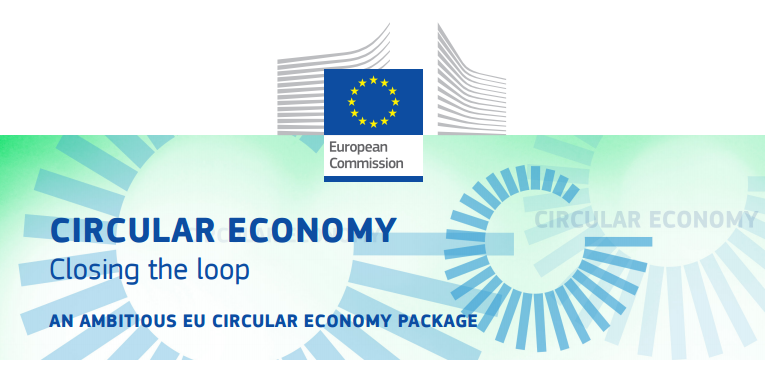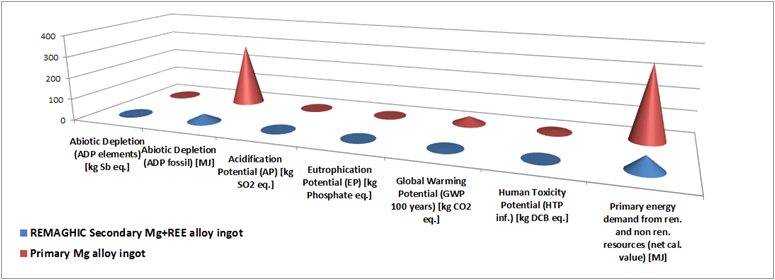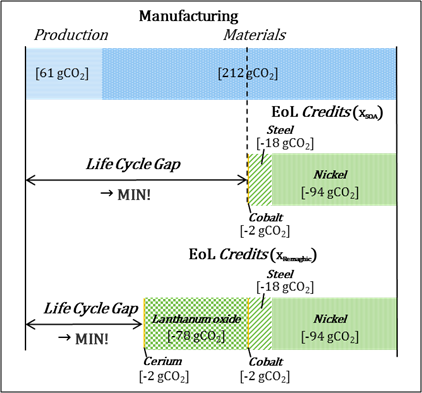This Life-Cycle Cost Analysis study was a part of the Remaghic Project and consists of quantifying the economic and environmental benefits associated with the new Rare Earth Elements (REE) and magnesium recovering process for the production of the innovative Mg+REE alloying. The balance between the resources needed and the emissions to the environment of these new technologies was made based on the Life Cycle Assessment (LCA).
In conclusion, the overall environmental performance of the REMAGHIC Mg+REE alloy is lower than those from primary alloy.
The Life Cycle Gap-Analysis (LCG-A)[1] has been applied in order to analyse the consequences of the developed recycling solutions for the recovery of Ce and La oxide from NiMH batteries.
*SOA- State of the Art
The consequences of the innovative recycling solutions for the recovery of REE from NiMH batteries developed within Remaghic are with regard to:
- Circular Economy and the vision of closed material systems (based on EU Action Plan for CE – Closing the loop). The recovery of lanthanum oxide and cerium enables to reduce the Life Cycle Gap (system losses within a Circular Economy) by 29% from initially 58 % ELCG(XSOA) to 29 % ELCG(XRemaghic).
- Current life cycle systems; making an effective contribution towards sustainability (based on EU Product Environmental Footprint). Based on the estimated industrial scale of the developed recycling solutions for the recovery of lanthanum oxide and cerium oxide, it can be expected that the total environmental footprint Etotal (XRemaghic) across the entire Life Cycle decreases by about 3%.
The recommendations for further action would be the improvement on optimization of the recycling processes for REE recovery, especially on ionometallurgical process and assurance that the NiMH batteries at the end of their usefull life are sent to high quality recycling routes with best available recycling technologies.
[1] Dieterle. M., Schäfer. P., Viere. T. (2018). Life Cycle Gaps: Interpreting LCA Results with a Circular Economy Mindset. Elsevier. ScienceDirect. Procedia CIRP 69 ( 2018 ) 764 – 768. doi: 10.1016/j.procir.2017.11.058.




Recent Comments